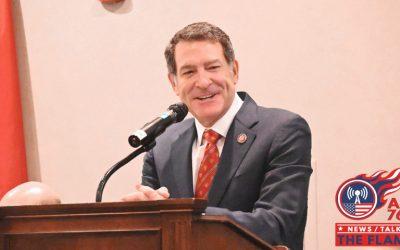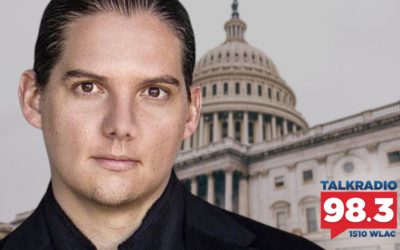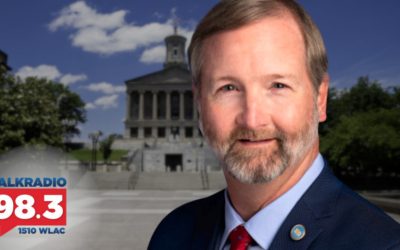Tennessee State Senator Kerry Roberts (R-Springfield) has doubled down on his call for incumbent U.S. Representative Mark Green (R-TN-07) to reconsider retiring from Congress and instead run for re-election.
Crom’s Crommentary: The Battle of the 99 Percent and the 1 Percent of Democrat Party Elites
Friday morning on The Tennessee Star Report, guest host Aaron Gulbransen welcomed original all-star panelist Crom Carmichael to the studio for another edition of Crom’s Crommentary.
Crom’s Crommentary: Former NY Gov Cuomo Criticizes DA Alvin Bragg’s Trumped-Up Charges
Monday morning on The Tennessee Star Report, host Leahy welcomed the original all-star panelist Crom Carmichael to the studio for another edition of Crom’s Crommentary.
Crom’s Crommentary: ‘A President Does Not Have the Authority to Give Debt Relief for Students Without an Act of Congress’
Wednesday morning on The Tennessee Star Report, host Leahy welcomed the original all-star panelist Crom Carmichael to the studio for another edition of Crom’s Crommentary.
Americans for Prosperity-Tennessee’s Grant Henry Weighs in on the Infrastructure Spending and the Use of Budget Reconciliation
Tuesday morning on the Tennessee Star Report, host Michael Patrick Leahy welcomed Grant Henry from American’s for Prosperity-Tennessee in studio to weigh in on infrastructure spending and the budget reconciliation process.
GOP Candidate for Nashville’s Fifth Congressional District, Robby Starbuck Explains His Top Legislative Priorities
Tuesday morning on the Tennessee Star Report, host Michael Patrick Leahy welcomed GOP Candidate Robby Starbuck in studio to discuss his two top legislative priorities if elected to Congress.
Professor of Law Phillip Hamburger Talks Constitutional Covenants and the Administrative Overreach by Unelected Bureaucrats
Wednesday morning on the Tennessee Star Report, host Michael Patrick Leahy welcomed the founder of the National Civil Liberties Alliance and Professor of Law at Columbia University, Philip Hamburger to the newsmakers line to discuss the issue of abuse concerning administrative power.
Crom Carmichael Discusses the Future of the Republican Party
Wednesday morning on the Tennessee Star Report, host Michael Patrick Leahy welcomed the original all-star panelist Crom Carmichael in studio to discuss the future of the Republican Party.
Tennessee Congressman Mark Green Outlines His Bill for Removing Critical Race Training from U.S. Military Academy
Friday morning on the Tennessee Star Report, host Michael Patrick Leahy welcomed Congressman Mark Green of Tennessee’s Seventh District to the newsmakers line to discuss his bill which would outlaw the training of critical race theory in U.S. Military Academy and others.
State Rep. Chris Todd from Jackson Weighs in on Court Packing, National Issues, and Etiquette as a Member of the Tennessee House
Thursday morning on the Tennessee Star Report, host Michael Patrick Leahy welcomed State Rep. Chris Todd from Jackson, Tennessee in studio to discuss court-packing, Keepnine.org, and working with House members.
Host Leahy and Dr. Carol Swain Discuss the Probability of the District of Columbia Becoming a State and the Invocation of the 25th Amendment
Thursday morning on the Tennessee Star Report, host Michael Patrick Leahy welcomed Dr. Carol M. Swain in studio to discuss the movement to grant statehood to the District of Columbia.
All Star Panelist Dr. Carol Swain Talks Parler Shutdown, Reality Czars, and the Current Orwellian Climate of America
Thursday morning on the Tennessee Star Report, host Michael Patrick Leahy welcomed Dr. Carol M. Swain in studio to examine the First Amendment in the Orwellian climate of today.
The Tennessee Star Report: The Epoch Times Political Columnist Roger Simon and Crom Carmichael Weigh in on the Certification of State Elections
Monday morning on the Tennessee Star Report, host Michael Patrick Leahy welcomed lead political columnist for The Epoch Times Roger Simon in the studio to discuss unlawful election law changes and criminal penalties going forward.













